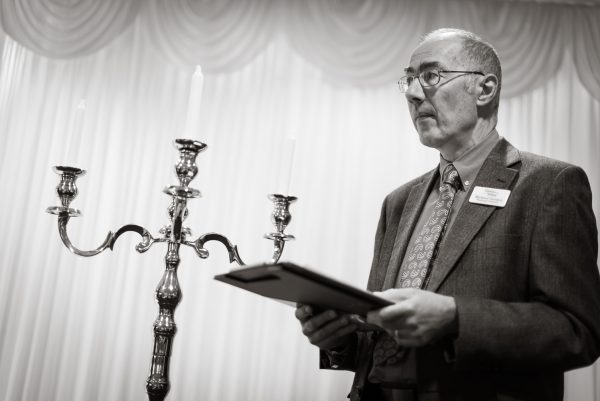Planning to write your own wedding vows? You might be OK with the prospect, but most people doubt they can do it. Worse still, how about delivering the finished product?
It’s very challenging to compose something that will be read publicly. Even more so, if it’s you who will be delivering it.
Cheer up! There are tips you can follow that will help you.
One simple option is to hire a professional to do it for you. Peace of mind in an instant!
The “how”
A civil celebrant is used to public speaking. He conducts weddings, funerals, vow renewals and other ceremonies on a regular basis. Sometimes, the guests number fewer than 10; often, there are more than 100 of them. A good civil celebrant will deliver the texts clearly, beautifully and movingly.
In order to put together the text, the civil celebrant will work with the relevant person(s), normally starting with a home visit. Asking questions and listening intently, the celebrant will draw up a picture of the person being honoured. Once he has sufficient information, he will go away and create a special ceremony.
This will be e-mailed to the client, who can request changes (normally, up till 24 hours before the ceremony). Once the order of service is settled, the client will have seen the final version, and approved every word.
Vows
If vows are to be written, it is lovely if they reflect the couple’s personalities and beliefs. The best people to do that are the couple themselves, of course! However, a celebrant can suggest ideas, offer guidance, so the couple can write something unique. If needs be, he can even do the job for the couple.
Vows can be traditional or modern. They want to be sincere and achievable. They can be solemn, but also funny. Moreover, don’t think that they have to go on too long! Half a minute each may well be all it takes.
Presentation
There are various choices available to you, when delivering your vows.
You can memorise what you want to say. If you’re an experienced public speaker, you might choose this option. Otherwise, I don’t recommend it. You will have nerves to contend with, and, indeed, you may not project your words loudly and clearly. If you are not heard, that would be a huge shame.
Secondly, you can read your words. In that case, in order not to lose the sincerity of the moment, use a 3 x 5 card with bullet points. Try not to read from it too much, though, so your eyes can meet your beloved’s! (That means plenty of practice beforehand, so you know what you’re wanting to say!) There’s also the question of keeping and holding the card, which may be an issue, particularly for the bride!
Thirdly, the celebrant can read your vows, ending by asking if you agree, and all you have to do is to say “yes” or “I do” (hopefully!).
Finally, the celebrant can read phrases out which you each repeat. That way, the guests can hear the vows, even if you’re mumbling them. Moreover, you and your beloved can say the words to each other with eye contact, and that is surely the way to go.
For examples of vows, or help and advice, feel free to ask me. I can be found at 07931 538487 or at celebrant@vowsthatwow.co.uk

